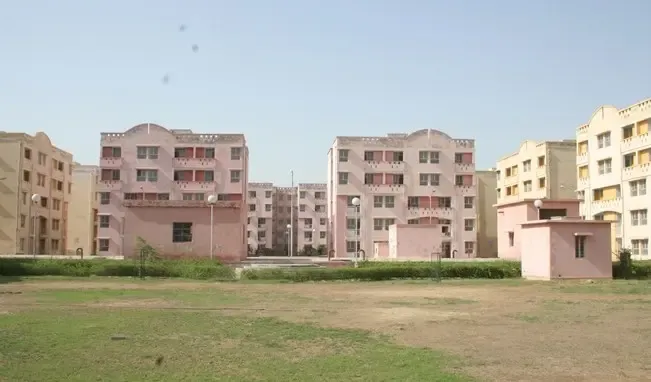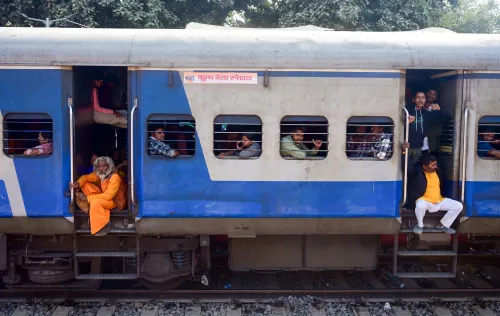NITI Aayog Unveils S.A.F.E. Housing Framework for Industrial Workers to Propel Growth

New Delhi, Dec 19 (NationPress) NITI Aayog on Thursday unveiled an in-depth report emphasizing the pivotal function of secure, affordable, flexible, and efficient (S.A.F.E.) housing for industrial workers in fostering India’s manufacturing sector.
India is on the brink of increasing its manufacturing sector’s contribution to GDP from the current 17 percent to 25 percent as part of its long-term vision of realizing Viksit Bharat by 2047. This ambitious goal aligns with the nation’s aim of becoming a global manufacturing hub under flagship initiatives like Make in India and Atmanirbhar Bharat. Achieving this vision necessitates a strong workforce strategy that includes adequate, nearby, and affordable housing for industrial workers, according to the report.
The report emphasizes that providing S.A.F.E. housing is vital to overcoming challenges related to workforce accommodations.
It notes that well-located and thoughtfully designed housing enhances workers’ quality of life, minimizes commute times, and boosts overall productivity. This leads to decreased attrition rates and lower recruitment expenses, ensuring a stable and skilled labor force for factories.
To tackle regulatory hurdles, the report advocates for the classification of S.A.F.E. accommodations as a unique type of residential housing to qualify for various tax incentives, such as GST exemptions for accommodations that meet specific criteria (e.g., Rs 20,000 per person per month for continuous stays of 90 days).
The report also suggests that the process for obtaining environmental clearances could be streamlined by including S.A.F.E. accommodations under exemptions for industrial sheds, schools, colleges, and hostels as outlined in the draft notification from the Ministry of Environment, Forest, and Climate Change.
There is also a pressing need to foster gender-inclusive policies that promote the development of accommodations tailored for workers, addressing their specific safety and welfare needs.
Furthermore, zoning regulations should be revised to permit mixed-use developments near industrial areas, making worker housing more accessible to workplaces.
To address financial challenges, the report proposes Viability Gap Funding (VGF) to cover up to 30 to 40 percent of project costs (excluding land). This includes 20 percent from the Department of Economic Affairs (DEA) and 10 percent from the sponsoring nodal ministry, along with additional funding from state governments.
The report also supports amending the VGF scheme to encompass affordable rental housing as an eligible sector.
It underscores the necessity of implementing transparent bidding procedures to ascertain VGF support, ensuring efficiency and cost-effectiveness.
Moreover, the report advocates utilizing VGF to enhance existing worker accommodations, improving their safety, capacity, and utility.
The report points out that in the Union Budget 2024-25, Finance Minister Nirmala Sitharaman highlighted the significance of rental housing with dormitory-style accommodations for industrial workers. This initiative, to be executed under a Public-Private Partnership (PPP) model with VGF support and commitments from anchor industries, reflects the government’s dedication to addressing a vital aspect of India’s manufacturing ecosystem.
The provision of S.A.F.E. accommodations is characterized not only as a welfare initiative but as a strategic necessity for India’s economic advancement. It addresses critical issues in workforce retention, productivity, and global competitiveness while encouraging sustainable urban growth,” the report states.
By adopting the recommendations laid out in this report, India can establish a robust framework for industrial worker housing, enabling the manufacturing sector to flourish and significantly contributing to the nation’s vision of Viksit Bharat. It is now imperative for all stakeholders—government, industry, and private developers—to collaborate and act decisively to turn S.A.F.E. accommodations into a reality, the report concludes.










